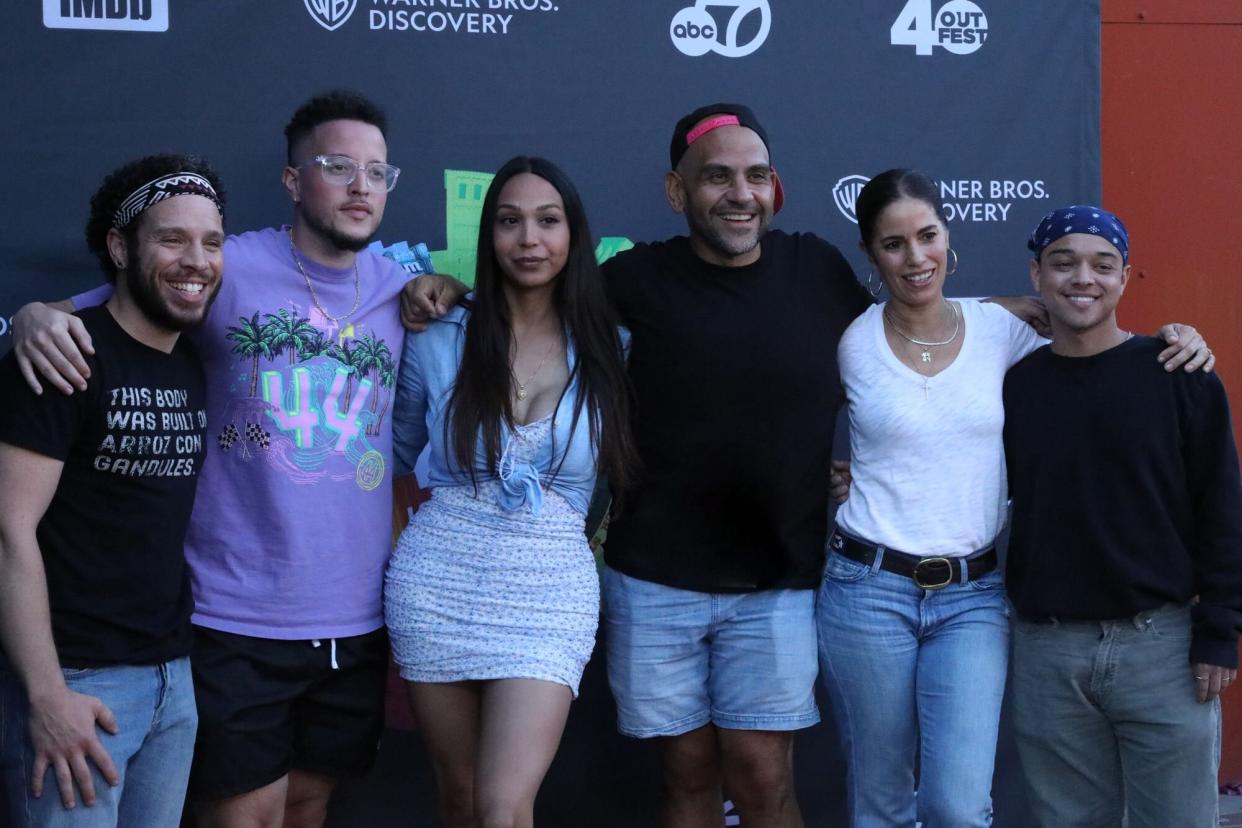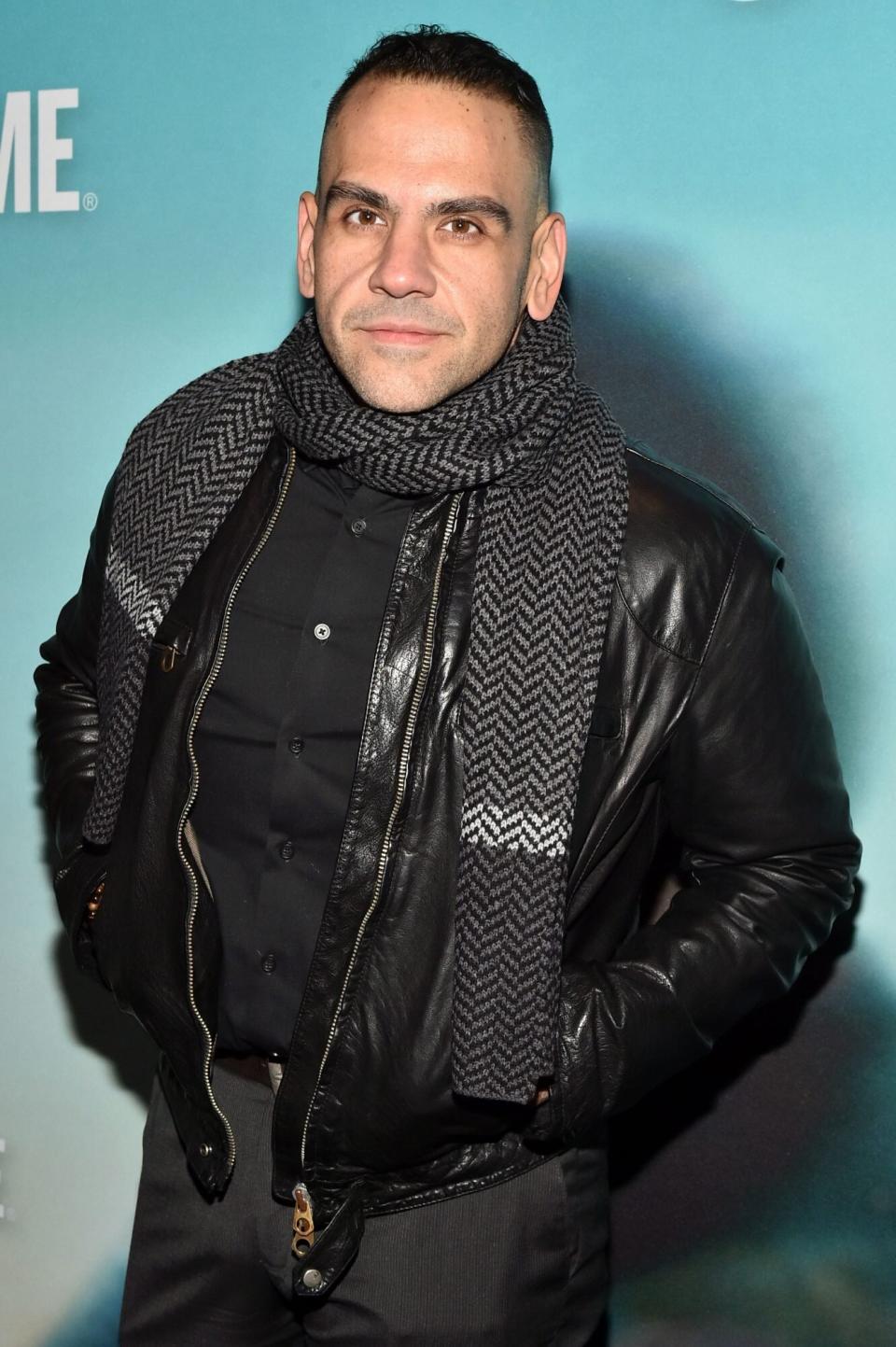Exclusive: How Love in Gravity is Changing HIV Stigma 40 Years Later

It has been 41 years since the first cases of the HIV/AIDS epidemic were reported worldwide.
The sexually transmitted disease, which has had a cumulative death toll of approximately 700,000 people across the United States, according to figures from the CDC, has seen great advances in prevention care and treatment that now offer people the hope of living long and healthy lives.
However, despite the advances of modern medicine and technology, stigma against those living or at risk for HIV continues to plague society, especially for underserved and minority communities, whose stories have not been shared openly until now.

Harley & Co
Love in Gravity, a first-of-its-kind narrative podcast featuring original stories from gay, bisexual and queer Latinx and Afro-Latinx writers and performers. The show hopes to bridge the gap between HIV treatment and stigma, increase empathy, acceptance and expand the narrative representation of the Latinx community.
"We have 40 years of that stigma to fight against and I think this is where projects like this are so important in terms of sharing these stories," actor and writer Dominic Colón tells People Chica. "We are talking about 40 years of shame, of saying this is bad, 'if you are gay, you will get this.' In order to get to that place of hope, these stories need to be liberated."
Colón, who is featured on "Our Lady of the Six Train," which he wrote and performed in, sees sharing these stories as a pivotal piece in demystifying HIV/AIDS for current and future generations.

The Grosby Group
"Fears need to be spoken about so that people aren't afraid, so that there is a sense of normalcy around this, so that the stigma can end," he adds. "Because, throughout the generations, if one generation is saying this is bad, this is what's going to happen to you, and it continues to perpetuate, then, ignorance is breeding ignorance, violence is bringing violence. We have to undo all of that shame."
For the Latino community, HIV continues to be a taboo topic, with one quarter of new HIV infections in the United States occurring among Latinos.
"From a numbers perspective, 30% of new diagnoses still happen within the Latinx community. I think one of the things you see in prevention, for example, is that almost 70% of prevention is accessed by white men," says Sarah Hall, executive producer of Harley & Co. "Sometimes there can be stigma associated with seeing a significant number in your community. But really, I think the exciting opportunity is that it's really about not having the stigma and accessing it at the same level, encouraging yourself and others to take care of yourselves and get that access."
The podcast, presented by ViiV Healthcare, the only pharmaceutical company solely focused on HIV prevention, is a six-part anthology series that takes listeners through a cross-generational rollercoaster that explores topics such as consensual non-monogamy, the spectrum of the LGBTQI community, gender identity, and pre-conceived notions of what is "wrong" or "right."
"The standard of care is there. Prevention has transformed, treatment has transformed. So it's really just us in how we behave. Stigma both social and cultural," Hall continues. "So if we could change that, the standard of care is ready to meet us."
Featuring a cast of more than 40 actors including Robin de Jesus, Harvey Guillen, Jessica Marie Garcia, Jason Genao, Javier Muñoz, and Wilson Cruz, each compelling narrative paints a portrait of the diversity within the Latinx community in the United States, taking us anywhere from a subway in New York City to Mexico.
Something that drew Colón to work in the project alongside writers JP Brammer, David Artavia. Francisco Cabrera-Feo, Andrew J. Rodriguez, and actor and screenwriter Tonatiuh, was the importance of sharing his own story as an HIV-positive man and the journey behind it.
"We started this process around a year ago and I wasn't out publicly yet with my status," he explains. "I came out as HIV positive publicly December 1st, World AIDS Day. In that confidence in coming out and a lot of the work that I've been doing, I noticed HIV kept on cropping into it and I thought for me to really tell these stories, I have to be able to be open about my status. And that was very important to me."
He adds, "I didn't know that I was going to come out publicly when I started to work on this, but I think that was part of my journey. The reason why I decided to become a writer and a creator is just, to tell the stories that we have not seen. And I think across the board, in Love in Gravity, you have not seen these stories. You have not seen these stories from these perspectives."
Hall invites audiences to find themselves in the stories as empathy comes to the forefront.
"It's like the power of empathy and teachable moments that in entertainment is often not harnessed to the degree that it should be," she says. "A lot of the writers, what they did so beautifully, was construct these moments where you maybe see another way."
Colón seconds this idea, encouraging listeners to step outside the boxes of their own socioeconomic labels and find their own perspectives.
"What I would love from the audience is that, even though a title of an episode might be in Spanish or it may make a reference to a six train, is to go into it with an open mind and be ready to connect," he shares. "Because the stories, are so real and they cross cultures, they cross socioeconomic levels. As a country, we're so used to kind of living in these boxes where it's like, 'oh, that's a Latinx show. Great writing crosses cultures."
Love in Gravity is now available for listeners across all major streaming platforms.

